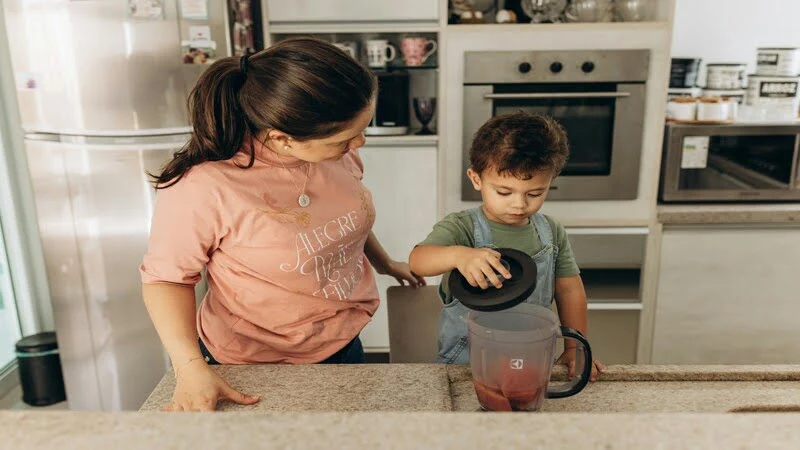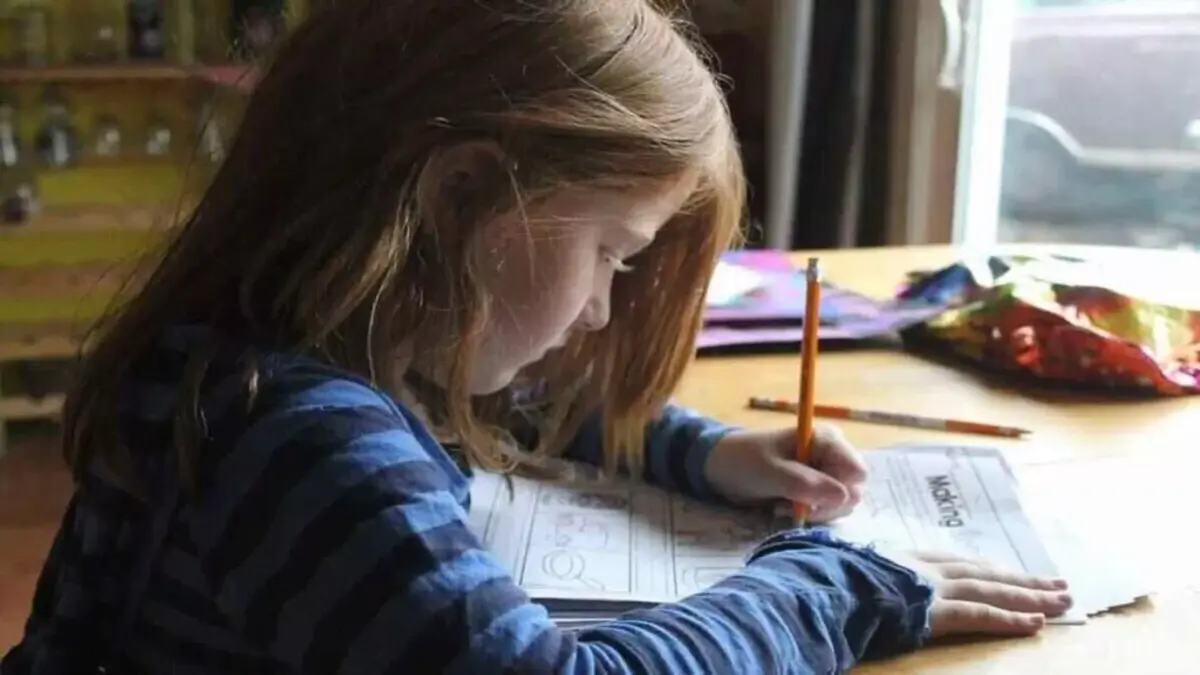Assigning Household Chores to Kids: Smart Age-Based Guide for Parents
It is being seen that we mostly struggle to assign the appropriate household chores to kids to make them aware of their responsibilities. They may be difficult to teach at times, but it is not always true. The amazing facts about kids are that they, too, are cooperative and understanding in their own way, provided we too, understand them as well. It is not always necessary that kids do tasks as per our directions. But even if done by the kids their way, distributing chores to kids is a must and should be encouraged by parents.
Most often, they can go wrong or tend to choose another way to do specific household chores. They may succeed or may not. But accepting and appreciating that the kids are applying their minds goes a long way in nurturing the child. Appreciating the children for their wit to do a task differently is also a great way of showing your affection.
Appreciate your child frequently
A significant factor is letting the child know that they are being appreciated. This goes a long way in boosting the self-confidence of the kid. Thus, nurturing your child’s desire to learn is the key to their mental well-being in the future.

Now, before distributing household chores to kids, we need to see the capability, age, physical health, mental framework, etc., of the child. We cannot just give absolutely any task to kids randomly like that. The kid needs to be understood well before being involved in any task or chores at home.
Understood, because the kid in question may be your own or your brother’s or sister’s or someone else’s, for that matter. That is why you need to know everything about the kids before you assign them any chores at home. You need to know whether the kid has been doing this sort of task before or not.
Have patience after distributing household chores to the kids
It should not happen that you suddenly surprise the child with a task that he or she is not acquainted with. Hence, there is a proper mechanism to be followed while distributing chores to kids at home.

Suppose a small child is being told to water the plants in the pots. Here, we may assume that this task is very simple and the kid can do it very easily. But what if the kid has never done this job? Or the kid is a slow learner?
The kid will feel nervous and may make mistakes. The kid may pour more water into the pot or may not handle the water pressure from the watering pipe. He or she may accidentally splash the water everywhere.
And especially when the kid is not your own, it may feel more nervous for the presumed punishment to follow after the unsuccessful or unfinished household chores. Therefore, this makes the entire exercise of allotting household chores to the kid futile and a terrible experience for the kid.
But suppose the same kid is quite good at counting, however small the numbers may be. So, won’t it be a good idea to utilize the capability of the kid in assigning the task accordingly?
For example, you may ask the kid to count the number of cardboards ready with paintwork or you may ask to count the number of seeds that need to be sown in the garden. Something which the kid is good at, so that your task gets easier.
If you scold the child for not being able to do the household chores effectively, then this does not serve the purpose. You have to keep your cool and have patience with the kid. The little one is still growing and learning and so a little patience will pave the way for the better growth of the kid.
Communicate with your kid about his progress
You need to be patient with the child, even if the task or the household chores performed by them are not up to the mark. However, it never means that you don’t have to take the kid to the task and make it understand where it has gone wrong. Politely and quite affectionately, the kid has to be told about this.

For example, you can tell him or her that the task given was not very easy, but he or she has done it quite beautifully.
However, the same task can be done in a better way if he or she tries. Then, practically showing them how to do it is a great gesture from you. In this way, the kids appreciate your acknowledgment of their work and your guidance for them to do it better.
Again, distributing home chores wrongly can lead to revolt or anger in the child.
For example, if you ask your kid to sweep the entire pathway in the garden, the kid may revolt. He or she may say, “You are so mean. You always punish me”.
Although you may not have that intention, the kid can get vocal and resent your move. Again, the way you carry out your instructions will decide how your kid understands your intention. Being empathetic and genuine, you can mould the behavior of the child accordingly.
If only the kid knew that the household chores, like cleaning, are also important and are our duty. The kid should not think of the sweeping task as being given for punishment. So, the entire thing depends upon the approach you take towards distributing chores to kids. Again, if the child is small, say seven years old, you cannot ask him to sweep. That also would look like a punishment, considering the age of the child.
Hold your kid to the task to make him a responsible person
Similarly, giving household chores like vacuuming the room when the kid is studying or playing is similar to a punishment. Having said that, if the task is appropriate for the child and is willing to do it, you have to hold them responsible. By responsible, we mean that the kid should be aware of every aspect of it. So your child should know the reason for doing it, the result expected and the guidelines to be followed.
Also, guide them about the necessary precautions that they need to take for the completion of the task. Basically, holding kids accountable will ensure that they are aware of the importance of the job so that they do it with conviction.
Also, they need to complete the task within the given timeframe and with minimum errors. By this, they will ensure that the task is done efficiently and smoothly, since only then will it be considered a good job. Plus, sometimes, the appreciation works wonders for the kids and they try to do better in the future.
At times, the gender of the kid also matters
Again, at times, you have to be aware of the nature of the chores that you are going to assign the kids. Here, sometimes, considering the gender of the kid is also of paramount importance before distributing the chores among the kids.

Suppose you have two children at home. Two household chores need to be completed in an hour or so. The two tasks to be completed are decorating the hall with flowers and watering the flower pots.
Suppose by any chance, you assign the former task to the boy and the latter one to the girl. Both of them may resent the tasks that they may or may not like. Of course, there is no thumb rule that decorating is only a girl’s job or that watering plants is a job for boys only. But, in most cases, both will prefer the reversal of roles for a change.
Hence, assigning or distributing household chores to kids will certainly depend upon age, tastes, temperaments, gender, etc. So, next, we will try to see what specific jobs can be allotted or distributed to kids at different age levels.
Motivation is an important factor for kids
Before distributing household chores to kids, make sure that you have motivated them enough for this. The motivation can be anything, like a reward, a gift, a promise of fulfilling a long-pending request from the kid or a motivating speech telling them that learning this task will help them in the future.
- Before asking your teenage kid to vacuum the room, make him understand the importance of cleaning in our lives and how learning to vacuum will ease his job.
- Or, before asking him to try his hand at preparing breakfast, it will make him independent and self-reliant.
- Also, before asking your little girl to paint her cupboard, tell her that painting the cupboard will make her look beautiful and everyone will appreciate her work.
You can also just announce a reward amongst kids; whoever makes their bed tonight in a tidy manner will be given a candy or chocolate. This is for reference only and you can decide what is best suitable at that moment or for that task. The aim is to keep kids involved in the task so that they do not feel that they are being punished for something or that you are harsh on them.
Start early and steadily with a plan
Another aspect that has to be kept in mind is that training your kids early will be very beneficial in the long run. Of course, you don’t want your kid to be dependent on you or any other person just because he or she does not know how to do household chores.
Even if the child is small, you can start with a small task and increase the intensity of the chore depending on what age of the child. However, you must show them how to do it if the kid is doing the task for the first time, as he or she may mess it up.
However, do not expect the kid to do the task perfectly. But it is ok. Perfection will find its way in due course of time with time. But the key is to at least involve them in one chore or the other as the best training is given at an early age only.
Having said that, make them understand that they need not worry even if they didn’t do it perfectly. They must be told that you are always there to help so that they get the confidence to do things without any hesitation or inhibition.
Household chores are to be distributed to kids according to age
There is a mechanism by which you can distribute the chores to your kids, which will make them feel comfortable and easy to do. You can’t allot a job to your kid that he or she has never done or is not comfortable doing. Here, we will discuss some specific tasks that you can distribute to your kids at their appropriate ages.
Distributing household chores to toddlers (Aged between 1- 3 years)
Even toddlers can be assigned small tasks. It makes them habitual in doing some work. It needs to be light work that the toddler can understand and perform. This is done so that later on, when they are grown up, they won’t complain about it or refuse to listen. Of course, you have to be with them and supervise them, as this is a very tender age. And yes, definitely encouraging them or praising them will give them a boost. Some of the chores that can be assigned are:
- Wipe up the spilled food
- Put the toys in the bins or the storage racks
- Hand over the lightweight items to the elders
- Put the washed clothes in the basket
- Throw the candy or chocolate wrapper in the dustbin
- Wish every teacher, doctor or maid at home got a favor from them.
Distributing household chores to preschoolers (Aged between 3- 5 years)
Preschoolers are in a phase of exploring the world and love to do different things. Therefore, you need to give them a little space to perform the household chores. In this way, you can involve them in a task more easily. You must apply the same rules as you do in the case of toddlers. Some of the tasks or household chores that you can give them are:
- Feed the pets at home.
- Help to set the table for meals
- Water the small plants
- Wipe the sink or washbasins after brushing, washing, etc.
- Clean their rooms of trash, paper bits, etc.
- Do the light dusting and set things in the right places.
- Sort the washed clothes or laundry
- Put off the lights when exiting the room or leaving the house
Distributing household chores to kids (Aged between 5- 8 years)
This age is quite delicate for the kids, as they tend to learn more about the outside world at this age. They are able to differentiate between good and bad. Get a little mature and start to question things and ask questions. At this age, kids need a little space for themselves so that they can sort things by themselves. Hence, show them what and how it has to be done and pull yourself a little away from them. This allows them to work a little independently. Some of the tasks which you can give them are:
- Start vacuuming the house.
- Take care of the pets, their food, cleanliness, etc.
- Learn to reply to phone calls, messages, etc.
- Water the garden and flower pots.
- Start to use washing machines, toasters, etc.
- Take the pets for a walk nearby.
- Help in the kitchen by preparing meals, setting the cutlery, crockery, etc.
- Clean the washroom, sink, and floor and put the garbage in the appropriate places.
- Help in folding the washed clothes, arranging them in the cupboard, etc.
- Make their beds with more concentration.
Distributing household chores to kids (Aged between 8- 10 years)
By this age, the kid is well aware of all the activities that they should learn. The kids are much more serious about doing household chores and take a keen interest in finishing the task with minimum errors.
Just need to allocate the task and they are on their own. Just make it more interesting and competitive if there are two or more kids. Divide the work and demand excellence from everyone. Some of the tasks which you can give them are:
- Help in preparing meals in the kitchen, with more concentration.
- Clean the dining table after the meals.
- Wash clothes in the washing machine, use a toaster, oven, etc.
- Vacuum the house with more effort and emphasis on cleanliness.
- Help with grocery buying and sorting them at home.
- Sort their cupboard and racks and put the ironed clothes inside after folding.
- Help clean the car and the seats and put the accessories back in them.
- Take the pets for walks in the nearby park, etc.
Household chores for children (Aged between 10- 12 years)
By this age, kids are already grown-up children and after some time, are going to enter their teenage years. With a more mature approach to things, your kids can solve problems by themselves. Just tell them what needs to be done and leave it to them. They will decide which task they want to do first.
Make a chart of the work that needs to be done every week. Now, let your child decide which task or household chores interest him or her the most. Trust their ability and give them the freedom to do things as they like, but remind them of the output that you want at the end of it. Some of the tasks which you can give them are:
- Paint and water the flower pots.
- Do the dishes after the meals.
- Toilet cleaning and sweeping the floor.
- Washing the car and its accessories.
- Preparing meals or breakfast.
- Cleaning the dirty clothes in the washing machine.
- Do the bedding and change the bedsheets.
- Perform light carpentry work or paint a wall.
- Order the menu in a restaurant.
Household chores for grown-up children (Aged between 12-14 years)
This is the age when the kid is just about to become a teenager. Hence, the kids are in between the stages of being kiddish and somewhat mature. This also starts the time when they are little rebels, but entirely dependent on their parents for almost everything.

Hence, you must appreciate them for any good work. However, do keep a watch on them while they are working on chores. The household chores that can be asked of them are a little more complex than they were when young. Hence, guidance is important too. Some of the specific tasks which you can give them are:
- Cook the meals once every week for the family
- Work in the garden, which includes watering the plants, removing weeds, working with seedlings, etc.
- Take care of their entire laundry on their own.
- Wash the car and its accessories.
- Vacuuming, sweeping and dusting the house.
- Pay the bills in restaurants or order food online.
- Clean and wash the Bathroom or toilets.
- Arrange the washed clothes and put them in the appropriate places.
The basic idea of distributing household chores to kids is to make them self-reliant and independent. They should feel that they can do almost any job if the concerned person is not available. Parents must teach their kids all the necessary chores at an early stage. Thus, by the time kids are grown up, they are fully capable of facing the world and the challenges life throws. That is the best the parents can do for their children without being too sentimental about their kids being exposed to work.
What is the right age to start assigning chores to kids?
You can start giving simple chores as early as 2–3 years old. Tasks like picking up toys or wiping spills help toddlers build habits early. The key is to match chores with the child’s age and capability.
Why is it important for kids to do household chores?
Chores teach kids responsibility, independence, time management, and respect for shared spaces. It also boosts their confidence and prepares them for adult life.
Should boys and girls be given different household chores?
No. Chores should be assigned based on the child’s ability, not gender. Teaching all children the same basic life skills promotes equality and confidence. However, a few tasks need discretion and sensitivity.
How can I motivate my child to do chores?
Use appreciation, positive reinforcement, small rewards, or make chores a fun family activity. Help them understand the value behind the task rather than using punishment.
What if my child refuses to do chores?
Stay patient and consistent. Set clear expectations, involve them in choosing tasks, and explain the importance of contribution. Avoid scolding—instead, use calm communication.
How do I decide which household chores are appropriate for each age group?
oddlers: Pick up toys, wipe spills
Ages 3–5: Feed pets, water plants
Ages 6–8: Make bed, help in the kitchen
Ages 9–12: Vacuum, clean bathroom
Teens: Cook meals, wash car, manage laundry
Is it okay to pay kids for doing household chores?
You can offer allowances for extra or advanced chores, but basic responsibilities should be unpaid to build discipline. Strike a balance between teaching work ethic and financial awareness.
What are the common mistakes parents make when assigning household chores?
Some common mistakes include giving tasks too advanced for the child’s age, being inconsistent, expecting perfection, or using chores as punishment. The goal is to teach, not to burden.









